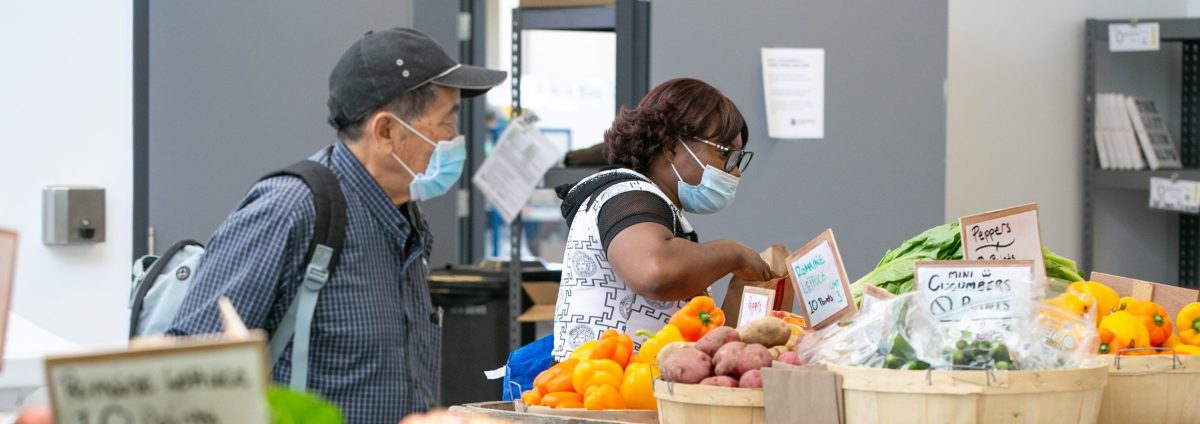
A new report authored by Ron Kneebone and Margarita Wilkins, School of Public Policy at The University of Calgary, identifies the extent to which food bank visits may be directly associated with changes in government policies.
Examining monthly data from Daily Bread Food Bank, the authors tracked changes in the cost of shelter and in labour market conditions against food bank visits between January 2014-March 2020 – a period which saw a 53% increase in visits. The report finds that food bank visits directly rise with increases in rent, with falls in minimum wage and with reductions in the disability benefits available to individuals requiring social assistance.
Extrapolations from this research show the impact in a place the size of Toronto and Ontario:
“This study shows that governments can put food banks out of business by focusing policies on rent stability and increasing wages and disability benefits,” says Neil Hetherington, CEO, Daily Bread Food Bank. “A failure to prioritize these will sadly drive more people to our doors because they have nowhere else to turn when their income cannot cover the cost of living.”
With a median income of $1,106 per month – which falls well below Toronto’s poverty line of $2,060 per month – food bank clients have $9.17 left per person per day after rent and utilities to pay for food and other necessities. According to the 2021 Who’s Hungry report, 51% of food bank clients have a disability or health condition that is expected to last a year or more. In addition, 80% of food bank clients living in private market rentals, reported they pay more than half of their income on housing, putting them at high risk of homelessness.
“For individuals and families with little in the way of savings and with limited access to borrowing from non-predatory lenders, even temporary losses of income or unexpected expenses demand an immediate adjustment to the rest of their already strained budgets,” says Ron Kneebone, Scientific Director of Social and Health Policy, School of Public Policy, University of Calgary. “Food banks can enable individuals and families to reallocate income away from expenditures on food toward meeting other basic needs.”
Last year, there were 1.45 million visits to food banks in Toronto – the largest number ever recorded in our city’s history. Although food banks are designed to provide emergency food relief, food insecurity cannot be outsourced to charity. All levels of government have a responsibility to put poverty reduction in their agendas and enact policies that will help to build economic and social resilience and ensure the right to food for all individuals
Click here for Press Release